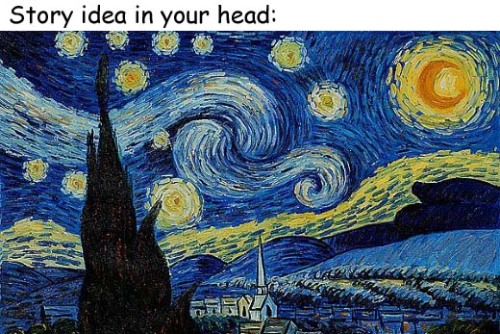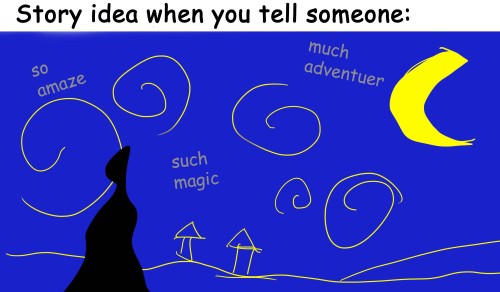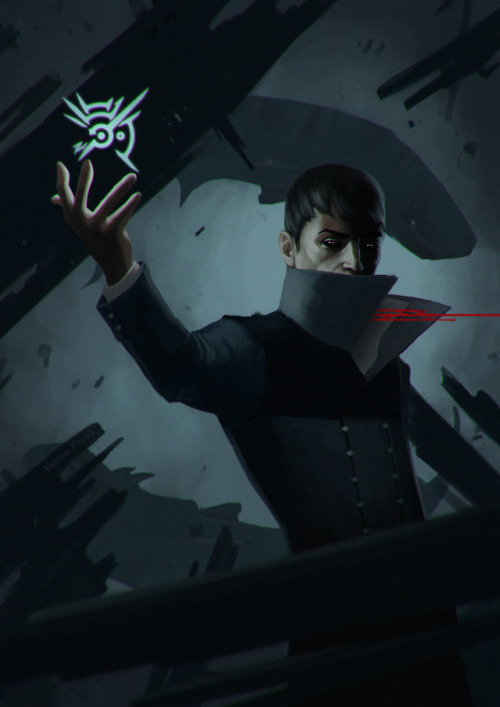100 Resources To Help You Write Your Novel
100 Resources to Help You Write Your Novel
The biggest challenge to writing a novel is enduring to the final two words—THE END. Between the first line and the last are questions, choices, doubts. Sometimes they get the better of us, sometimes and we quit before the draft is complete.
The following articles contain insights, inspiration, maps and methods, answers to questions, and myriad tools to get unstuck.
The Idea
Story arises from the impetus that starts the imagination on a quest to create a world in which the idea can grow in a movement toward meaning. Learn how to generate, recognize, and test your story ideas.
The Idea
Where Ideas Come From
Follow the Story
Keeping Confidence When Sails Deflate
What If?
What’s In A Title?
Storm Clouds
Wrong Turn
Obsession
Turn A Taboo
Cerebral Cinema
Heard It Through the Grapevine
Enter Stranger
Mad, Mad World
The Myth of Marital Bliss
A Picture’s Worth 1000 Words
Quotes for Writers
Photo Gallery Prompts
Theme & Premise
Theme is the tangential force that unifies story elements and instills those elements with meaning. From theme, the writer weighs in with a premise, and the story gains its philosophical, psychological, or spiritual spine. A well-crafted premise forces the writer to identify a main character, a central conflict, and a general plot. Like a mini-outline, the premise illuminates the story’s best course.
Understand the dynamics of theme and premise, learn how to differentiate and utilize the two.
Every Story Needs a Theme
Two Sides To Every Story
All-American Theme
How to Write a Story Premise
Plot Structure & Development
Story is a record of years, weeks, days, while plot derives and conveys meaning from a span of years, weeks, days. A hero wants something, goes after it despite opposition, and arrives at a win, lose, or draw. Unlike a chronicle of events (when someone says this happened, then this, then that) plot is dynamic. Plot is an interplay of forces coming together, pushing against each other, incrementally advancing while simultaneously coming to a boil, and ultimately achieving equilibrium.
Discover how to maximize the physics of drama.
The Physics of Drama
Plot Structure in Three Acts
Plot: The Inciting Incident
Plotting Your Novel’s Middle
Plotting the End of the Middle
Plotting the End
Something Happened
The Moment of Clarity
Filling the Emotional Void
Balancing the Plot Triad
Balancing the Plot Triad Part II
Creativity Abhors a Box
The Outline
An outline provides milestones along a story’s route and makes sure the writer hits his plot points while steering clear of detours. Of course, some wrong turns amount to genius, but an outline can help to identify what is genius and what is superfluous.
To Outline or Not To Outline
The Outline as Plot Development
Outline in Three Acts
Outlining The Ten Story Elements
Outlining The Ten Story Elements Cont’d
Creating Characters
Knowing what your characters need from you to take on a distinctive persona is integral to their creation and the success of your novel.
What goes into a great first line—a line so promising that readers commit to the next two chapters?
Characters & Plot
Memorable Characters
Identifiable Characters
Test of Time
The Character Profile
From Backstory to Front
The Heart of Character
Prince By Palace
Thoughts
Body Language
As A Man Speaks
Words Portray Character
Opinions
Actions
Through Another’s Eyes
Pressure
Character Check
A Unique Brand of Nice
Creating Funny Characters
The Fatal Flaw
Fatal Flaws in Literature, Film, & Television Characters
The Character Arc
The Enneagram Personalities
The Enneagram in Literature
By Any Other Name
Fiction’s Best Characters
Joseph Heller’s Yossarian from Catch-22
Anne Tyler’s Maggie Moran from Breathing Lessons: A Novel
The Lead
What goes into a great first line—a line so promising that readers commit to the next two chapters?
Your Novel’s All-Important Lead
Begin With Character
Begin With Place
Begin With Questions
Begin With Answers
Begin With The Problem
Begin With The Unprecedented
Pencil In a Title
7 Ways NOT to Begin Your Novel
100 Best Opening Lines
The Ending
What goes into a great ending—an ending so satisfying that readers commit to buying your next novel?
Endings Part I
Endings Part II
100 Best Novel Endings
Dialogue
The dos and don’ts of writing dialogue that will move your story forward while establishing characters.
Dialogue Part I
Write Between the Lines
Dialogue Is Adversarial
Internal Monologue
He Said, She Said
Dialogue Checklist
Humor
Everyone enjoys a laugh, but some writers are better than others when it comes to getting a chuckle from their readers. As E.B. White wrote, “Humor has a certain fragility, an evasiveness which one had best respect.” But understanding the patterns and repetitions that breach expectations, writers are able to craft the benign violations that tickle the brain and add to the texture of any genre piece.
Humor in Literature
The 1, 2, 3 of Humor
Humorous Imagery
Humorous Word Choice and Arrangement
Words With a Humorous Ring
Characters That Get Us Laughing
Humor Writing Exercises
Edits & Revisions
Editing is everything. Know what to look for and how to self-edit your novel.
Editing Your Manuscript
Editing Your Manuscript Part II
Re-Vision
Re-Vision Part II
Editing Checklist
TWITTER I FACEBOOK I GOOGLEPlus I PINTEREST I WEBSITE
More Posts from Othermanymore and Others
Creating plots with the zigzag method
I’ve learned this method years ago and I’ve been using it ever since. The zigzag plot creator starts like this:

An crescent zigzag.
You can have as many up and downs as you want. I’ve drawn six to keep it simple. Alright, this zigzag is your storyline and every corner is an important event that will change everything:

Every down represents a bad thing happening to your main characters, taking them further away from their goal. Every up is a good event, taking them closer to their goal:

So, when the zigzag goes down, something bad must happen. When the zigzag goes up, something good must happen. The reason why we drew a crescent zigzag is because every down must be worse than the previous, and every up must be better than the previous. As the zigzag advances, events become more serious and relevant.

Let’s apply the zigzag method. My storyline is a detective trying to catch a serial killer in a futuristic city. Minutes later, this is what I’ve got:

Start: Detective, our protagonist, is just promoted
Down #1: Mass suicide happens in town, detective gets the case, the whole town thinks it might have been a religious suicide act, but detective suspects that someone single-handed killed all those people
Up #1: Detective finds clue about a possible killer
Down #2: A bigger mass murder happens, a true massacre, it’s a definitely a murder
Up #2: Detective finds the killer’s trail
Down #3: Thinking he is ahead of time, close to catching the killer, detective ends up dead in another mass murder
Up #3: Because of his notes and discoveries, the police is able to find the killer before they leave town
From this point on you can play with zigzag as much as you want. For example, changing the orientation of the zigzag for a bad ending:

Lots of ups and downs:

Or just a few:

It’s up to you (see what I did there?).
You can plot any type of story with the zigzag method. It’s a visual and easy process for a very complex task.


good design
Ronia the Robbers Daughter
what a great harpy! i would love to see it in a high budget film



The Outsider’s Mark (x)
Another one that has been a long time coming! I LOVE the Dishonored games, so it had to be done at some point ;)

-
 queenbeehistoria liked this · 9 months ago
queenbeehistoria liked this · 9 months ago -
 bigbookauthority reblogged this · 3 years ago
bigbookauthority reblogged this · 3 years ago -
 moonblast-glitter liked this · 4 years ago
moonblast-glitter liked this · 4 years ago -
 taleofsummer liked this · 4 years ago
taleofsummer liked this · 4 years ago -
 amethyst-leader reblogged this · 4 years ago
amethyst-leader reblogged this · 4 years ago -
 amethyst-leader liked this · 4 years ago
amethyst-leader liked this · 4 years ago -
 acroakingbird liked this · 5 years ago
acroakingbird liked this · 5 years ago -
 zoueriemandzijnopmars reblogged this · 6 years ago
zoueriemandzijnopmars reblogged this · 6 years ago -
 katcola liked this · 6 years ago
katcola liked this · 6 years ago -
 satanicbeing liked this · 6 years ago
satanicbeing liked this · 6 years ago -
 bibliomancywitch reblogged this · 6 years ago
bibliomancywitch reblogged this · 6 years ago -
 uv-ray-main liked this · 6 years ago
uv-ray-main liked this · 6 years ago -
 klllbill liked this · 6 years ago
klllbill liked this · 6 years ago -
 impolamac reblogged this · 6 years ago
impolamac reblogged this · 6 years ago -
 twilight-empress-nhaama-blog reblogged this · 6 years ago
twilight-empress-nhaama-blog reblogged this · 6 years ago -
 inner-collector-miracle liked this · 6 years ago
inner-collector-miracle liked this · 6 years ago -
 bullshitreaderltd liked this · 7 years ago
bullshitreaderltd liked this · 7 years ago -
 one-chapter-at-a-time-blog reblogged this · 7 years ago
one-chapter-at-a-time-blog reblogged this · 7 years ago -
 scribhneoirbeagnach reblogged this · 7 years ago
scribhneoirbeagnach reblogged this · 7 years ago -
 gutsbutt liked this · 7 years ago
gutsbutt liked this · 7 years ago -
 mada5000 liked this · 7 years ago
mada5000 liked this · 7 years ago -
 heresjeonny liked this · 7 years ago
heresjeonny liked this · 7 years ago -
 elvencantation reblogged this · 7 years ago
elvencantation reblogged this · 7 years ago -
 elvencantation liked this · 7 years ago
elvencantation liked this · 7 years ago -
 not-mad-but-diabolik liked this · 7 years ago
not-mad-but-diabolik liked this · 7 years ago -
 kosher-salt reblogged this · 7 years ago
kosher-salt reblogged this · 7 years ago -
 deuterium51614 reblogged this · 7 years ago
deuterium51614 reblogged this · 7 years ago -
 the-hebrew-impact-frame reblogged this · 7 years ago
the-hebrew-impact-frame reblogged this · 7 years ago -
 gutenmorgens reblogged this · 7 years ago
gutenmorgens reblogged this · 7 years ago -
 agogirl1 liked this · 7 years ago
agogirl1 liked this · 7 years ago -
 lesbianwords reblogged this · 7 years ago
lesbianwords reblogged this · 7 years ago -
 batwizard liked this · 7 years ago
batwizard liked this · 7 years ago -
 amxngthestxrs liked this · 7 years ago
amxngthestxrs liked this · 7 years ago -
 hikonyandesu liked this · 7 years ago
hikonyandesu liked this · 7 years ago -
 givemeahug reblogged this · 7 years ago
givemeahug reblogged this · 7 years ago -
 ref-dumping-ground reblogged this · 8 years ago
ref-dumping-ground reblogged this · 8 years ago -
 pockypuck reblogged this · 8 years ago
pockypuck reblogged this · 8 years ago






